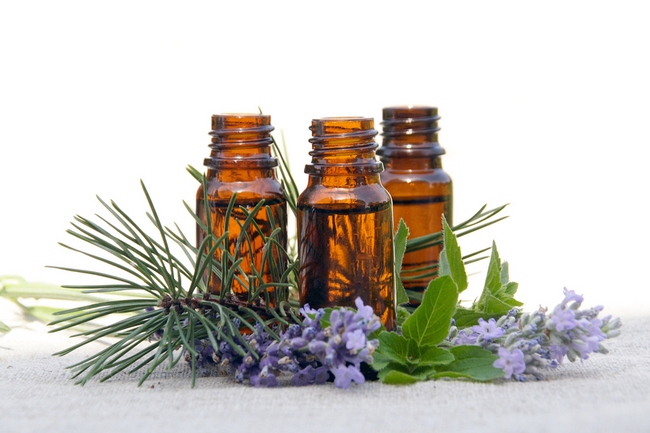- Make It Yourself Lavender Heart-Shaped Bath Bombs!
- 20 Things You Never Knew About “Down There”
- 12 Best Foods For Those Suffering From Arthritis Pain
- 12 Personal Hygiene Mistakes Almost Everyone Makes (Mom Never Told You About #4!)
- 15 Medicinal Plants And Herbs From The Cherokee People
- 12 Mind-Blowing Benefits Of Drinking Coconut Water During Pregnancy
- 12 Outstanding Winter Foods That Won’t Fatten You Up Like A Christmas Turkey
How Essential Oils May Save Your Health (And The World!)

Photo credit: bigstock.com
Which Essential Oils Should I Use?
Here is a list of essential oils which have shown great promise in treating a variety of both minor and serious health problems. Many oils need to be blended with a “carrier oil”in order to be most effective. Coconut oil (which also has antiviral properties) is a popular choice for this.
- Lavender: Lavender oil is effective for treating skin conditions like psoriasis and acne, and has also proven effective at speeding up the healing of wounds and sunburns.
- Eucalyptus: This oil has demonstrated an ability to speed up the healing of wounds and protects the wound from air exposure.
- Tea Tree Oil: This is a “super oil” which has antibacterial, antiseptic and unlike antibiotics, antiviral properties. This is sometimes found in designer shampoos and skin creams, and is one of the few essential oils that can be applied topically without requiring dilution with a carrier oil. Like eucalyptus oil, it has also shown an ability to increase the speed at which wounds heal.
- Lemon Grass: Lemon grass oil can be used to treat bacterial infections like malaria, urinary tract infections, and food poisoning.
- Oregano: Oregano oil has been used in poultry production for its’ ability to protect against nasty food-borne bacteria like E.coli and salmonella.
- Bergamot: One of the essential ingredients for Earl Grey tea, bergamont-derived oil can be used to treat mouth and skin ailments like cold sores, herpes, shingles, and internal conditions like intestinal worms.
- Thyme: Can be effective against MRSA and normal staph infections. Very welcome news for those in the medical field.
READ ALSO: Essential Oils And Other Natural Substances That Work Like Antibiotics
Now the point here is not to make people swear off antibiotics altogether. Antibiotics however should be considered a last resort when dealing with bacterial infections, since their rampant overuse has contributed to making them less effective. Essential oils can serve as a natural alternative to antibiotics without the collateral damage to your microbiome. Talk to a naturopathic doctor and to your medical doctor about which oil will be most effective for you, and how to use it for your specific condition.
References:

































Anto
Jun 20, 2016 at 1:58 am
This winter I’ve been using a mixture of peppermint and rosemary oils to prevent chilblains which I’ve suffered from every year for the last 46 years. It seems to be working, so far no chilblains after 4 weeks of cold weather. I’m rapt! ‘very grateful to the person who posted the remedy on a health blog I chanced upon.